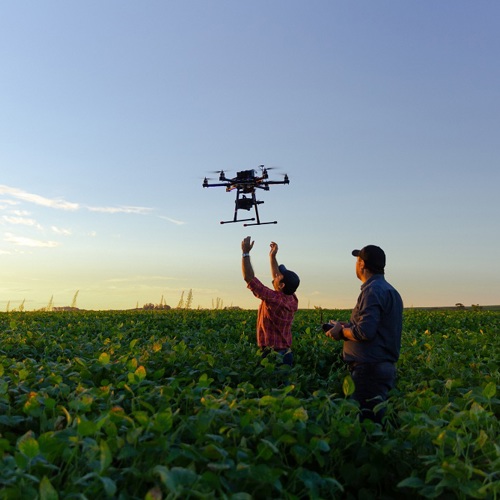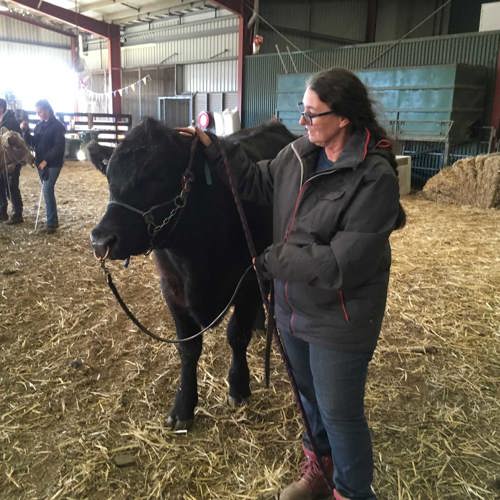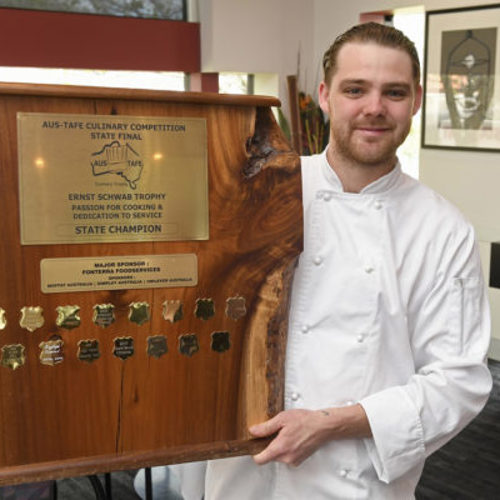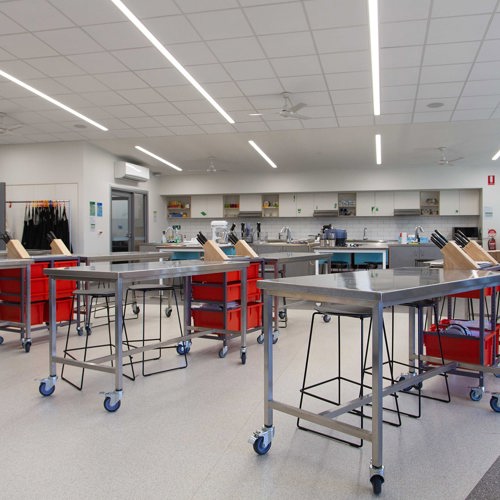Bachelor of Hospitality Management
Overview
3 years full time / 6 years part time
3 years
February, July
February, July, November
There’s no better time than now to enrol in a Bachelor of Hospitality Management
Equip yourself for a future in any hospitality managerial position as you learn the ins and outs of all arenas within the service industry, learning how to lead and make critical decisions in real-world scenarios. This degree paves the way towards opportunities working in hotels, theme parks, resort clubs, cruise lines and event management. If you already have hospitality experience, this course could be exactly what you need to progress into a managerial role.
Career Pathways
Where will the Bachelor of Hospitality Management take me?
The vocational outcomes for you on graduation include the following management and supervisory positions in event and tourism industry enterprises or operations.
- Food and Beverage Attendant
- Bar Attendant
- Event Assistant
- Event Operations Assistant
- Wine Retailer
- Event Manager
- Restaurant Manager
- Function Centre Manager
- Winery Supervisor
- Reception Centre Manager
- Food and Beverage Manager
- Hotel Manager
- Motel Manager

Course Details
Delivery methods
Course delivery continues at Melbourne Polytechnic during the challenges of the coronavirus (COVID-19) situation the world is facing right now. Our top priority remains the health, safety and well-being of our community.
Class Schedule
Classes run across mornings and afternoons Monday to Friday.
Assessment Methods
Throughout the degree you will be assessed through a combination of examinations, assignments, tests (written and practical), group and individual reports and projects, essays, practical tasks, literature reviews, journals, presentations, interviews, case studies, self-reflections and class participation.
Units of Study
Credit points are a basic measure of student workload. All subjects are given a credit point value. Most subjects at Melbourne Polytechnic are 12 credit points. A normal full-time annual workload is 96 credit points. The academic year is divided into two main semesters; full-time students usually enrol in 48 credit points each semester, part-time students usually enrol in 24 credit points each semester or less.
| Code | Subject | Elective | Description | Year | Semester |
| BHM102 | FOUNDATIONS OF INFORMATION TECHNOLOGY | Core | The purpose of this subject is to introduce the field of information and communication technology (ICT) and its role within a business context. This includes how information technology (IT) supports business productivity with database systems and software applications, as well as the common terms and concepts. This subject also introduces global IT work solutions and considers the implications of these in reshaping various organisations | 1 | |
| BHM103 | MARKETING PRINCIPLES | Core | This subject develops students understanding of marketing and the skills needed to conduct basic marketing activities. The philosophy and concepts of marketing used in business and organisational settings are explained and students will use these, as well as develop the skills, to design and implement a basic marketing campaign. Students will develop their marketing knowledge and skills by identifying, analysing and discussing the application of marketing concepts and theory in a range of businesses within various of local and international industry contexts. | 1 | |
| BHM104 | EFFECTIVE BUSINESS ENQUIRY AND COMMUNICATION | Core | This subject provides an introduction to the principles of academic and business enquiry. Students will undertake an investigative process commonly used in undergraduate business studies. This subject includes the development of academic and literacy skills needed to undertake higher education studies with an emphasis on investigations, literacy and presenting information. | 1 | |
| BHM105 | ACCOUNTING FOR MANAGERS | Core | This subject introduces students to the concepts of accounting and management decision making; and provides accounting and decision‐making skills to apply in a business context. Students will develop knowledge of business analysis, financial planning, performance management and costing principles so as to make effective management decisions. | 1 | |
| BHM107 | FOUNDATIONS OF BUSINESS | Core | This subject provides an introduction to the key management concepts and core business practices. It covers the major functional areas of business, including management, marketing, accounting, finance, economics, and information technology of today’s competitive business world. In addition, it introduces other important concepts such as ethics and social responsibility, forms of ownership, small business and entrepreneurship, and international business, as well as, latest trends in economy, social networking, competition in the global marketplace, and the green movement. | 1 | |
| BHM108 | Food and Beverage Operations | Core | The purpose of this subject is to introduce the knowledge and skills required to manage food and beverage operations within a commercial environment. Students will observe, participate and compare restaurant operations and service; and demonstrate management knowledge in a food and beverage context. It also provides a theoretical and practical framework for the management and administration of food and beverage operations. | 1 | |
| BHM101 | INTRODUCTION TO THE HOSPITALITY INDUSTRY | Core | This subject provides students with an overview of the hospitality industry in terms of the diverse hospitality sectors and their business structures and management functions, which range from sole trader businesses to complex, multifaceted hospitality businesses. Students will be introduced to the ethical, social and cultural aspects of the hospitality industry and gain an overview of relevant government and private sector local and national hospitality related agencies. Students will examine contemporary hospitality and emerging trends industry issues and future challenges. | 1 | 1 |
| BHM106 | Accommodation Management | Core | The purpose of this subject is to provide an overview of the accommodation industry and to focus on the planning, implementation, management, review and other requirements of the reservations, front office and housekeeping operations. Students will analyse skills and knowledge of front office operations and use industry standard management information systems. | 1 | 2 |
| BHM201 | Management Fundamentals | Core | This subject introduces students to the concepts, principles and theories of contemporary management practice. Students will gain an overarching appreciation of the discipline of management which students will develop in greater depth as they proceed through the course. Students will also apply these management principles in activities designed to help them develop their management style and practice by exploring different ways of managing within a range of organisational types. | 2 | |
| BHM204 | HOSPITALITY LAW | Core | The purpose of this subject is to provide students with an overview of the legal system: the courts, parliament and government; specific aspects of the law and the specialised language of law. The subject explains the legal and contractual environments of business and examines the bodies that regulate the hospitality industry. Students will analyse legal aspects of hospitality case studies and apply concepts of business law to a range of hospitality business scenarios. | 2 | |
| BHM205 | PEOPLE AND CULTURE | Core | This subject will provide the student with knowledge of the theory, application and practice of human resource management. The purpose of this subject is to provide a theoretical foundation for understanding human resource management and its application to businesses in the student’s field of study. The subject focuses on the acquisition of knowledge of human resource planning, job analysis and design, recruitment and selection. | 2 | |
| BHM206 | FINANCIAL MANAGEMENT | Core | This subject explores best practice approaches to the use of corporate funds and resources in achieving long term corporate goals, considering social and ethical factors. This includes the application and analysis of tools to determine and manage investment projects and strategies. | 2 | |
| BHM203 | Event Management | Core | This subject aims to develop students understanding of the operational and management elements of events management and to extend this knowledge of event operations through the application of event management concepts and theory in context. Students will stage and manage an event for a nominated industry partner and apply research methodologies to its planning, marketing, management and evaluation. Local, major and hallmark events will be used to provide a broad perspective of event operational issues and challenges. | 2 | 1 |
| BHM202 | FOOD AND BEVERAGE MANAGEMENT | Core | This subject extends students knowledge of and skills relating to the concepts, principles and theories of management in contemporary, commercial food and beverage operations. Students will observe, analyse and apply information and management systems in a range of food and beverage operations. Students will apply understanding of information management systems to the design of a management strategy for a small to medium size food and beverage operation. | 2 | 2 |
| BHM303 | CAPSTONE PROJECT 1 | Core | The capstone subjects bring together all students learning and experiences from across the course to develop their ability to practice as professionals and to utilise their professional judgement. The capstone subjects are structured to either undertake or simulate real world professional experiences. The subjects are problem based and require students to identify, choose and employ the relevant knowledge and skills from amongst those they have developed over the course to explore, address and resolve a given professional situation. This capstone subject is one of two subjects delivered in third year. This is the first subject of the capstone experience providing them with planning, scoping and problem defining experience of real-world or simulated projects. | 3 | |
| BHM304 | HOSPITALITY ECONOMICS | Core | The purpose of this subject is to provide students with an introduction to economic theory: macro-economic and micro-economic theory and their application to the hospitality industry at the local, national and international level. The subject provides the knowledge to competently read and analyse academic economic commentaries of relevance to the hospitality industry. Students will explain how markets work efficiently and analyse a current issue of national or international interest affecting the hospitality industry. | 3 | |
| BHM306 | CAPSTONE EXPERIENCE 2 | Core | The capstone subjects are structured to either undertake or simulate real world professional experiences. The subjects are problem based and require students to identify, choose and employ the relevant knowledge and skills from amongst those they have developed over the course to explore, address and resolve a given professional situation. Students may undertake work on an industry project or similar. This capstone subject is the second of two capstone subjects delivered in third year. The project from the first capstone project will be completed in this second capstone project. | 3 | |
| BHM312 | DESTINATION MARKETING - ELECTIVE | Elective | This subject provides students with the fundamentals of the marketing of tourism destinations at various levels including global, national, state, regional and local levels. Topics such as target marketing and destination positioning, aspects of destination experience, and sustainable tourism destination will be taught. Additional topics covered in this subject include the promotion of destination, destination image, destination choice, destination competitiveness, the role of Destination Marketing Organisations (DMOs), and the role of business partnerships to add value to the marketing of destinations. | 3 | |
| BHM302 | REVENUE MANAGEMENT | Core | This subject provides students with an understanding and overview of revenue management in the hospitality and tourism industry. Students will understand the role and function of the revenue manager, the key executive responsible for managing the pricing and supply policies in hotels, airlines and ground transport firms within the hospitality and tourism industry. Topics covered include complex concepts such as demand forecasting and yield management, and strategies and tactics used by the hospitality industry with regard to revenue management. Students will be taught how to critically review key roles and approaches to revenue management to optimise revenue management practices in both local and global contexts. | 3 | 1 |
| BHM310 | SUSTAINABLE PROCUREMENT IN HOSPITALITY - ELECTIVE | Elective | This subject provides students with the general principles of procurement and the benefits of including the concept of sustainability in procurement decisions in hospitality businesses. | 3 | 1 |
| BHM313 | International Culinary Culture | Elective | This subject analyses the cultural influences of food styles and service requirements to gain a critical insight into the evolution, development and management of international cuisines and service expectations. The subject makes a comparative analysis of cuisines and investigates major influences on cuisine development. | 3 | 1 |
| BHM301 | HOSPITALITY RESEARCH | Core | The purpose of this subject is to provide an introduction to research methodologies as applied to the hospitality industry, examining generic research and analysis skills used in qualitative and quantitative research processes, including the identification, collection, analysis and reporting of secondary and primary data. Students will work in small teams and use statistical measures and tests, market trend analysis and qualitative analysis methodologies to report on aspects and trends in industry of their choice. | 3 | 2 |
| BHM305 | EMERGING TRENDS IN HOSPITALITY | Core | This subject examines contemporary issues and the forecasting of future trends which may impact upon the hospitality industry. Topics covered include globalisation of businesses, changing consumer demographics, emerging consumer trends, threats of terrorism and natural disasters, social media and technological innovations, and labour issues. The understanding of these dynamic changes will allow students to recognise the most significant issues affecting the profitability of hospitality businesses. This subject equips students with the knowledge to effectively respond to emerging trends to remain relevant to today's consumers | 3 | 2 |
| BHM311 | SERVICES MARKETING - ELECTIVE | Elective | This subject will provide students with in depth understanding of the theory and practice of services marketing. The impact of technology, changing customer requirements and expectations and globalisation are all examined. Students will apply understanding of the elements of services marketing theory to produce a services marketing strategy for a nominated organisation in a business. | 3 | 2 |
Attend an Information Session
Fees & Costs
Fee-paying Places
| Per year | $11560 |
| Per semester | $5780 |
| Per year | $19600 |
| Per semester | $9800 |
When you are studying higher education courses you may qualify for FEE-HELP payments for part or all of your tuition fees. FEE-HELP loans do not cover materials costs.
Fees displayed are effective for new applications received on or after 1st of November. Tuition fees do not include textbooks, course materials or overseas student health insurance and visa fees.
After initial deposit, international students are able to pay tuition fees in installments, four times per year.
For more detailed information please read the International Student Fees.
Hospitality courses at Melbourne Polytechnic
Requirements
All Applicants
All applicants are required to attend an interview.
Applicants with recent secondary education (within the past two years)
Successful completion of Year 12 VCE or equivalent with no specified minimum ATAR score and a study score of at least 20 in any English.
Applicants with vocational education and training (VET) study
Successful completion of a VET diploma.
Applicants with higher education
A complete or incomplete higher education qualification.
Applicants with work and life experience
Relevant industry or life experience.
Higher Education Admissions Criteria
As well as the specific entry requirements above, Melbourne Polytechnic admits students on the basis of the following categories:
If you have already studied higher education: Y ou may meet the admissions criteria for higher education at Melbourne Polytechnic if your highest level of study since leaving secondary education is a higher education course, such as a university degree.
If you have studied a VET course: You may meet the admissions criteria for higher education at Melbourne Polytechnic if your highest level of study since leaving secondary education is a vocational education and training (VET) course.
If you have recent secondary education: You may meet the admissions criteria for higher education at Melbourne Polytechnic if you are a recent secondary education student whose admission is primarily based on the completion of Year 12 within the past two years.
If you have work and life experience: You may meet the admissions criteria for higher education at Melbourne Polytechnic if you have work and life experience and left secondary education more than two years ago and have not undertaken vocational education training (VET) or higher education study since then.
Academic: Australian Year 12 equivalency
English: Academic IELTS 6.0 with no individual band below 5.5, Pearson PTE Academic 50 overall with no individual communicative skill below 42, or Melbourne Polytechnic recognised equivalency.
Next Steps
Melbourne Polytechnic is committed to providing transparency to the admissions process. In line with this commitment, we provide you with information that will help in making informed choices about your future studies.
Find out more about Melbourne Polytechnic’s commitment to admissions transparency.
Applicants for this course will need to have met the academic requirements. Meeting the minimum admission criteria does not guarantee entry into this course. Past academic performance may be considered.
You may also be required to attend an interview to discuss your career plans, aptitude and understanding of your chosen course of study and the requirements of tertiary study. (This may be conducted face-to-face or by through a video conference call using Skype or other application).
During your interview, you may be asked to provide:
- Your CV outlining your relevant work and life skills and experience
- Any letters of reference from employers
- Documents relating to prior study including course transcripts and subject outlines from other Higher Education Providers if you wish to apply for credit
When we receive your application, the International Office will be in contact with you shortly to discuss your application and provide you additional instructions.
If you'd like to speak to one of our International Office staff directly, call 1300 635 276
Local student means; you are an Australian citizen or permanent resident, a New Zealand citizen or a permanent humanitarian visa holder.



